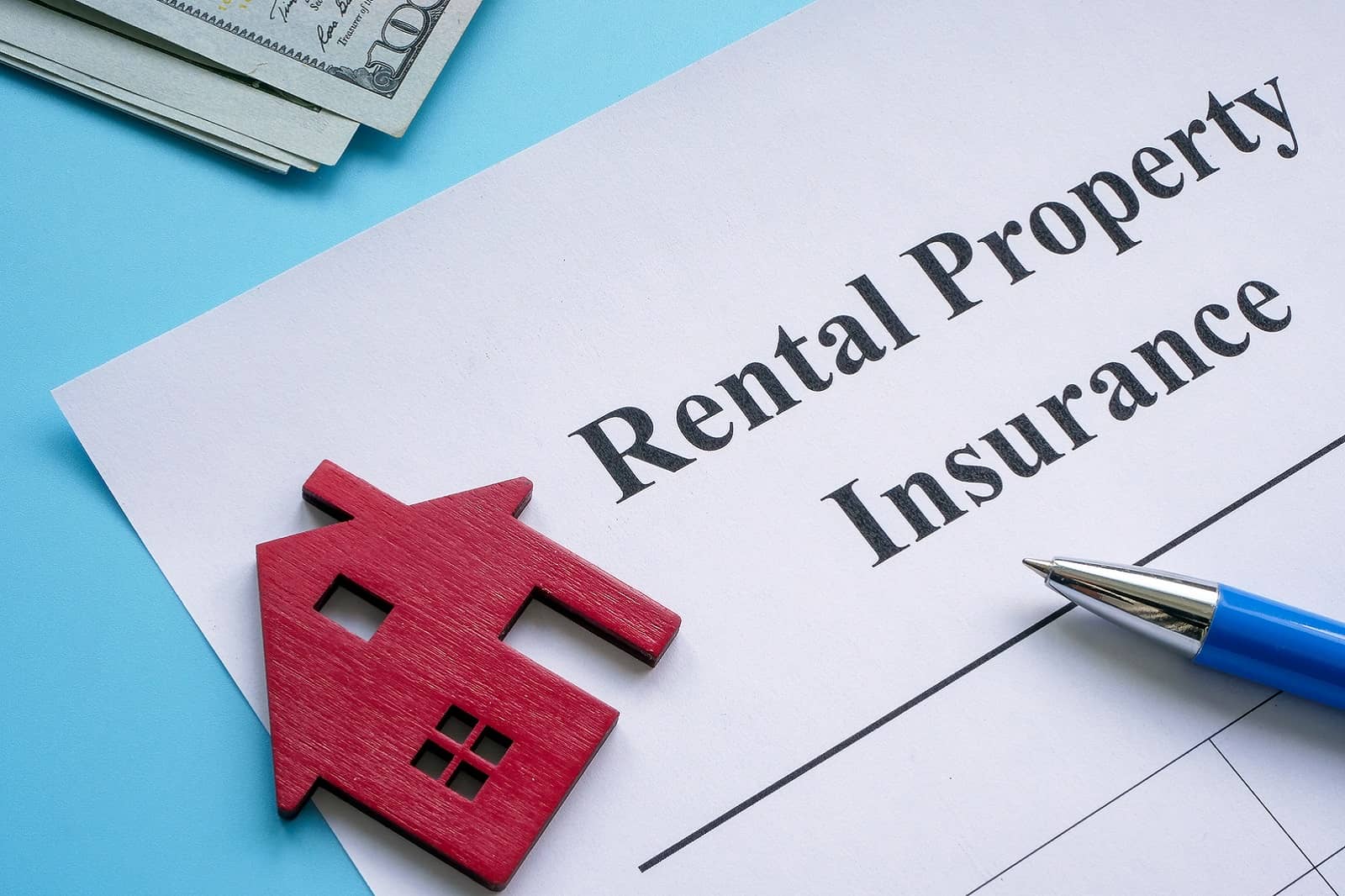
Whether you own a short term or long term rental, it’s a must to protect it with the right type of insurance.
Renting out can lead to many different situations that can cost you thousands of dollars and turn your positive cash flow into negative. To avoid such circumstances, it’s important to have good rental property insurance (RPI).
This article will cover everything you need to know about this, from what is included in this insurance, through the types of coverage you can get, all the way to the cost you should expect to pay. Finally, we’ll show you the best company for real estate investors.
Key Takeaways
- Rental property insurance is a specialized type of insurance that protects real estate investments and their owners.
- Getting the right protection is crucial for running a successful and profitable rental business.
- There are many different types of insurances and coverages, and each landlord should choose based on their needs.
- The cost depends on a number of factors, and there are certain things investors can do to minimize the price.
- Steadily is the top insurance company for rental properties in the US market.
What Is Rental Property Insurance?
Rental home insurance acts like a homeowners insurance for rental property. While homeowners insurance provides the basic coverage needed for a primary residence, it does not cover the risks associated with running a rental business. Thus, landlords and Airbnb hosts need to look for the additional real estate investment protection offered by rental house insurance.
Defining Rental Property Insurance
Insurance for rental property, also referred to as landlord insurance, is a special type of real estate insurance that covers both an investment property and its furnishings, on the one hand, and personal liability, on the other hand. Moreover, in most cases it also pays lost rental income when a house becomes uninhabitable after covered events. It is specifically designed to keep income property owners and their houses safe and protected.
Related to this, the Airbnb insurance is a specific case of the rental property home insurance that is tailored to the needs of vacation rental homes and Airbnb hosts.
How Rental House Insurance Differs from Homeowners Insurance
These two types of policies cover very similar things including the dwelling, additional structures, the owner’s personal property, and personal liability. They also offer comparable add-ons such as vandalism, flood, and earthquake coverage.
However, there are important differences between the two as well. The major one is that homeowners insurance only applies when you reside in the house. This means that it might work out in situations where you rent out a spare room in your primary home, whether on a short term or long term basis.
But it does not insure your investment property and everything that happens to and on it if you are a full-time landlord who rents out to third-party tenants and does not live in the house. In this case, you need insurance for rental property. While it is not legally required for investors, it can make the difference between a profitable real estate business and a money-losing one.
Why Rental Property Insurance Is Important for Real Estate Investors

Here are all the reasons why you should get insurance for your rental property even if it’s not legally required
The importance of investment property insurance stems from the fact that it protects income properties and their owners from a wide range of foreseeable and unforeseeable events and risks that can lead to minor or major property damage, complete home destruction, or legal suits against the owner.
Protecting Your Investment from Unforeseen Events
The profitability of an income property is defined by the ongoing rental income and the operating expenses, which together make up the cash flow, as well as the initial purchase price of the house. In addition to recurring costs such as property tax, property management fees, and property maintenance, tenant actions, natural disasters, and third-party human activities can turn into a source of major expenses.
For example, fire in the kitchen unintentionally started by the renter can spread through several rooms and end up costing many thousands of dollars in fixes and repairs. This is not something that your homeowners insurance will pay for if you don’t live on site and rent out instead.
But it is something that rental property insurance will reimburse you for as part of the tenant damage coverage. In addition, the policy will provide you with income while you’re implementing the necessary work. Together, these will make your investment a positive cash flow property once again.
In this way, this insurance protects you and your investment from a wide range of unforeseen circumstances including but not limited to fire, lightnings, floods, earthquakes, theft, and others, depending on your specific policy.
The Role of Insurance in Risk Management for Rental Properties
Moreover, the liability coverage aspect of the rental home insurance helps manage many of the risks originating from investing in real estate.
For instance, your tenant might fall down the stairs of your single family rental home and claim that it is your fault because the stairs are too slippery or not well maintained. Their injury might require thousands of dollars in medical expenses. The medical bill can get quite steep in case they need to spend a few days in the hospital. Furthermore, the renter might decide to sue you, leading to a few more thousands of legal expenses. This is just an inherent risk embedded in being a landlord.
The best rental property insurance will cover both the medical costs and the legal fees, saving you a lot of money in unexpected rental expenses. Simple rental property analysis will show how having the right coverage can tip the balance in your favor and allow you to generate good return on investment in spite of mishaps in your house.
Thus, the best landlord insurance helps protect your real estate assets and mitigate the financial risks related to renting out.
Types of Coverage in Rental Home Insurance

Find out what rental home insurance covers and doesn’t cover
Before you look for a specific insurance quote, you should understand what is covered – and what is not – by a rental property insurance policy. After all, there are many different types of insurance and various coverages that protect against a wide range of events.
The main types of insurance for rental property include:
- DP-1: This dwelling policy (DP) is the most basic insurance type and protects the primary dwelling structure against a limited list of specifically listed perils. It’s a peril policy.
- DP-2: This peril policy offers protection against a more extended list of events including falling objects, freezing pipes, electrical damage, theft, and vandalism, to name a few.
- DP-3: This open peril policy is the most comprehensive type of landlord insurance and covers losses from (nearly) all perils. Some typically excluded losses include intentional damage, government actions, water damage, and power failure.
Next, let’s take a look at the exact coverage provided by home insurance for rental property.
In other words, we’ll answer the question: What does landlord insurance cover?
Dwelling Coverage: Safeguarding the Physical Property
First and foremost, rental property insurance protects your real estate assets in case of different natural disasters and human-made accidents. In most cases, this covers the primary structure, additional attached structures (like a garage), detached structures (like a shed or a swimming pool), and even your personal property used in the business (like furniture, appliances, etc.).
Standard policies typical insure against:
- Fire
- Water damage
- Windstorms
- Hail
- Hurricanes
- Tornados
- Lightnings
Liability Coverage: Protecting Against Legal Claims
Second, and equally important, you get landlord liability insurance. This includes both medical expenses and legal expenses in case a tenant, their guest, a property manager, or a contractor gets injured on the investment property.
Regardless of whether you were present during the accident or not, your insurance company will pay for the associated costs without you having to cover anything out of your own pocket.
Loss of Income Coverage: Ensuring Cash Flow During Interruptions
Third, the insurance policy includes rental income protection. This means that if a covered event makes your property unrentable for a few days or a few months, the insurance provider will make payments to you equivalent to the lost rental income, usually at fair market value.
In this way, you will continue to earn rental revenue from your income property even when it’s not operational and is currently being fixed. Your rental property insurance will pay for both the repairs and your income.
Additional Coverage Options: Vandalism, Natural Disasters, and More
Rental home insurance policies are not fixed. While there is some standard coverage that most companies provide, the majority of agents allow you to add more coverage to fit your exact needs. The additional coverage that makes sense for your asset depends on the location, the risk of natural disasters, the crime rates, the rental age and condition, and the availability of landlord personal property on site.
The most popular add-ons include:
- Flood insurance
- Earthquake insurance
- Theft
- Vandalism
What Is Not Covered
In spite of the ability to customize your insurance coverage, there are certain things that rental property insurance does simply not protect against.
These include:
- Tenant personal belongings such as clothing, furnishings, electronics, and others (these are covered by the renters insurance)
- Normal wear and tear
- Acts of negligence
- Intentional damage
How Much Does Rental Property Insurance Cost?
The price of your landlord insurance policy can vary widely as it depends on multiple factors. According to Steadily, a leader among rental policy insurance companies, the average annual premium in the US market is $1,478: ranging from $595 in the Oklahoma real estate market to $2,419 in the Delaware housing market.
Compared to homeowners policies, rental house insurance is about 20% to 25% more expensive. This is because properties inhabited by tenants rather than owners suffer from more frequent damages and accidents due to the lack of similar level of care and more irresponsible behavior.
The main factors that determine the rental property insurance cost include:
- Location including rental laws, legal requirements, proneness to natural disasters, and crime rates
- Property price
- Rental age and state
- House safety systems
- Tenants (for instance, short term rentals and student housing might be more costly to insure)
- Coverage extent and additional coverage
- Deductible amounts
- Claims history
As a savvy investor, you should aim to buy a rental property in a top market and in a good condition and provide it with a solid home security system to lower the cost. Moreover, you should screen tenants diligently and avoid unnecessary claims. Finally, you should personalize the coverage and deductibles to the specific needs of your property.
Where to Find the Best Insurance for Rental Property in the US
With dozens of popular providers in the US market, it’s hard to find the best one. Our review of the best landlord insurance companies shows that Steadily is a top choice for investment properties across all the most profitable locations for investing in real estate properties.
What makes Steadily stand out from the competition is the fact that they were established as a specialized rental property insurance company that works with both short term and long term rentals, of all residential property types. Protecting income properties and their owners is at the core of the Steadily business, resulting in a comprehensive coverage that insures against all foreseen and unforeseen risks that can happen in the rental industry.
What’s more, getting started with Steadily is really easy. All you have to do is to contact the company and a dedicated insurance agent will provide you with an instant quote.
Conclusion: Protecting Your Rental Property Investment with the Right Insurance
One of the worst mistakes that an investor can make is to assume that no disaster will ever happen to their investment. While major accidents might not be common, they can be extremely expensive and turn a profitable real estate business into a failure.
To avoid this, you should be preemptive in your rental property management strategy and get the right rental house insurance. It’s important to analyze your particular situation and sign a policy that covers the exact needs of assets. There’s no point in overpaying for add-ons you don’t need, and there’s no point in taking unnecessary risk by avoiding coverage that your market and property demand.
For optimal results, you should work with the best company in the real estate insurance industry. Click below to get a customized quote based on your location and property.
